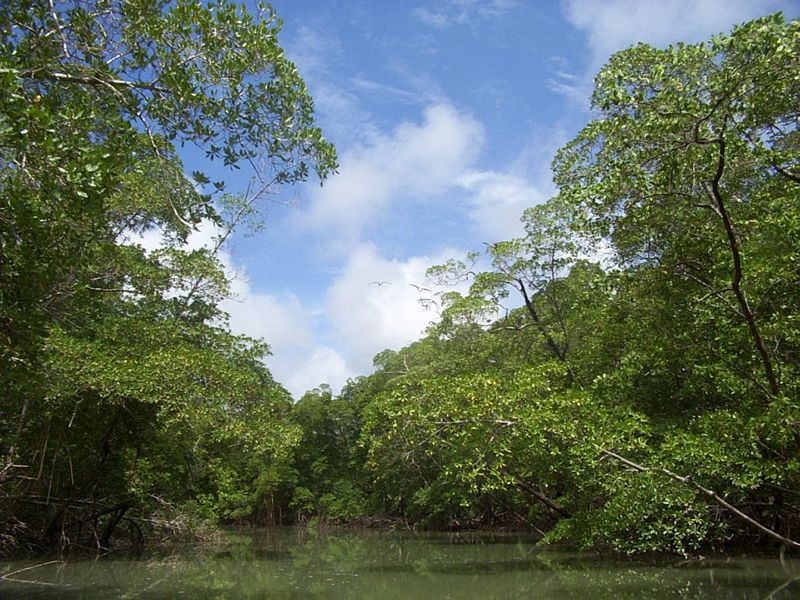Course:ECON371/UBCO2010WT1/GROUP5/Article 8
Brazil’s National Plan on Climate Change and the Amazon Fund: “This plan does not create any carbon credits or right to emissions”
Summary
The article summarizes Brazil's plan on climate change and presents the Amazon Fund. The plan focusses on 7 areas: low carbon development, renewable electricity, biofuels, deforestation, forest cover, vulnerability and adaption and research and development. Suzana Kahn Ribeiro, State Secretary of the ministry of Environment, explained further that Brazil's government is encouraging the ethanol program, which crops would be on degraded areas other than forest and therefore, reducing 70% of deforestation and 4.8 billion tons of GHG emission. By 2015, the plan aims at eliminating the net loss of forest cover.
In terms of the Amazon Fund, it's established to combat deforestation and to promote sustainable development in Amazon. The fund aims to raise US$21 billion and any project funded through it has to comply with Brazil's plan on climate change. Most important, the plan does not create any carbon credits or right to emission.
Paul Todescan Lessa Mattos from the Brazilian Development Bank (BNDES) says the bank has disbursed US70 billion on the Amazon Fund and the bank is opening subsidiaries to raise fund. To deal with climate change, we need a large amount of budget.
Nicholas Stern, as a university professor, says that the plan of using biofuel as a clean technology can be quickly achieved if there is a clearheaded policy and Brazil should keep his commitment to a low carbon economy even though oil is found. He speaks about the danger of a collapsed Amazon if people do not address climate change. He reinforces that all people will benefit and therefore, everyone should support the Amazon Fund.
Carlos Minc, Brazil's Environment Minister, says Brazil's plan on reducing 4.8 billion tons of GHG emission is more than all the developed countries promised in Kyoto. He promises that ethanol production will be green and doubles its monitoring effort on illegal logging. Besides, he points out that when developing countries are raising funds to reduce emissions, the developed countries should meet their emission target as well.
However, there are concerns about after the plan has been established.Whether Brazils government would trade off emissions from oil against deforestation? Whether the government planning a two-tier approach under which private companies can set up forest conservation projects which generate carbon credits but the government cannot? How about human rights and poverty when sugar plantation is forced to close as instructed in the plan. Why Brazil's government is constructing the dams? All these questions can only be answered after some period of time.
Analysis
One thing we need to pay attention here is the Brazil's government is having a plan which does not create any carbon credits or right to emission. Therefore, this is not economically efficient. With tradable permit on carbon emission right, such as the Juma Reserve RED Project, Brazil, which has a lower cost to reduce carbon emission, could have the incentive to trade the carbon right internationally. One interpretation for Brazil government's plan of not trading carbon credit could be the moral consideration. In reality, it is not easy to determine who owns the carbon right. Furthermore, without tradable permit, the total emission reduced in Brazil is higher under a certain target level. When carbon trade is open, we sell emission in exchange for money, which is not moral and a lot of debate may arise. However, Brazil will suffer a great economic loss from it, especially when Brazil is still a developing country. Given the fact that the Juma Reserve RED Project in Brazil sells carbon credits internationally, I'd rather believe that Brazil's government is planning a 2-tier approach under which private companies can set up forest conservation projects which generate carbon credits but the government cannot do directly.
Talking about biofuels, it's true that biofuels can reduce GHG emission better than using fossil fuels. However, we need to notice that biofuels are mostly from agricultural products which need a certain area of land to produce. Even though the representative of the government promises that the biofuels production would only take place in degraded land and won't cause deforestation, we need to think when the demand for biofuel is ralatively high in the future, to increase the output of biofuels, unavoidably more land need to be used. This will cause deforestation once again. As well, the government should pay extra attention on what to grow on the land. For example, growing oil palm is better than growing soy bean and ethanol. Growing oil palm cost a larger amount of capital input, but in a long run, it yields a higher payoff since the marginal product of land is higher in producing oil palm and it doesn't cost less fertilization of the land. Therefore it is better for our environment.
Another problem discusses in the article is the distinction between industrial tree plantation and forest. In Brazil's plan, an 5.5 hectares of plantation is scheduled to be built and it mixes up the term between "net deforestation" and "net loss of forest". For sure people can identify the difference and see this would cause ecological damage. But at a first glance at Brazil's plan, people may be confused by the vague expression. The government is exaggerating its rate of reducing deforestation.
Conclusion
Finally, it's important to realize that every environment policy is open ended. An ideal policy to protect our environment would take a long procedure to come into effect and it can be improved from time to time. People still have a long road to balance the relationship between economic output and environmental protection.
Prof's Comments
Good point that the plan could perhaps be more efficient if it included some economic incentives. Be careful talking about using the international market for carbon. There has to be one for that to work, and it isn't clear that there will be one.
